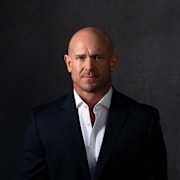As RFK Jr. Takes Aim at Big Pharma, Norbert Heuser Exposes America's Sugar Addiction Epidemic

As 2024 ushers in political change, one of the most contentious issues bubbling beneath the surface is public health — notably, the role of addictive substances like sugar. With RFK Jr. now expected to confront the FDA's role in allowing harmful products into American diets, we are reminded of voices like Norbert Heuser's, who have long warned us about the pervasive addiction that sugar and similar substances create. In a recent conversation, Heuser broke down how sugar has infiltrated our food supply, contributing to health crises and fueling massive profits for companies at the expense of public well-being.
"Do you think more people are addicted to sugar than caffeine?" John Welbourn, retired NFL lineman and co-host of the Everyday Warrior Nation on SI, asked. A resounding 'Yes,' Norbert explained, discussing how sugar is deliberately added to products across the board — from cold cuts to energy drinks — with the aim of fostering dependency. Heuser's insights are sharp: 99% of the products marketed to consumers, he claims, contain addictive components, whether it's sugar, caffeine, or even artificial ingredients designed to keep us hooked.
Sugar is not just a sweet additive; it's a potent substance that impacts the brain, much like drugs. Scientific studies reveal that sugar can spark cravings that mimic those triggered by addictive drugs. According to the National Institute on Drug Abuse, sugar activates dopamine release, a brain chemical associated with pleasure and reward, reinforcing a cycle of consumption. This becomes a profitable formula for companies investing heavily in advertising to keep consumers coming back. As Heuser pointed out, "They're not stupid. They spend $10 million on advertising and get a hundred million back."
But the damage goes beyond consumer wallets; it's manifesting in American health statistics, where alarming figures underscore the consequences of our sugar-laden diet. More than 42% of American adults are obese, according to the CDC, with even higher rates among specific demographics. This has far-reaching consequences, impacting military readiness as well. Over 70% of Americans aged 17-24 are ineligible for military service, primarily due to obesity and health-related issues, a stark figure that calls for urgent attention. This crisis directly threatens national security, as the military faces a dwindling pool of eligible recruits.
In the discussion, Heuser highlighted one product that is especially concerning: energy drinks. While they promise a quick burst of energy, the toll on health can be severe, particularly for young people. With high levels of sugar and caffeine, these drinks can lead to conditions like fatty liver disease and severe liver damage. As John Welbourn explained, "The largest problem (outside of combat) plaguing the US military is energy drinks…kids are dying from fatty liver and needing kidney and liver transplants.” Energy drinks are often marketed aggressively to young consumers, exploiting their lack of awareness about the risks, much like tobacco companies once did.
So, what's driving this trend? Experts point to the renewable consumption model, a term that John mentioned in our discussion with Norbert. This approach essentially means creating products that generate recurring purchases — consumers come back for more because the product is designed to create dependency. Sugar, with its addictive properties, is a key ingredient in this model. And it's not just energy drinks: packaged foods, snacks, and even some meats are laced with sugar to ensure consumers keep coming back.
As RFK Jr. steps up to examine the FDA's complicity in allowing unhealthy and addictive products into the food supply, many Americans hope for change. Yet much work must be done to shift the public consciousness. Sugar is deeply embedded in American culture and diets, and real change will require education and policy adjustments to reduce its grip on consumers. This issue goes beyond individual choice; big corporations' influence and lobbying efforts cannot be ignored. Historically, companies have fought tooth and nail against labeling requirements or restrictions on marketing, particularly to children.
As Heuser and other advocates have suggested, one way forward could be to regulate sugar with stricter guidelines or tax sugary products to offset the public health costs associated with their consumption. Other countries have taken such steps: for instance, the UK implemented a "sugar tax" in 2018 on beverages that contain high levels of added sugar, significantly reducing sugar content in many products.
Another approach is simply promoting awareness. Consumers armed with knowledge are more likely to make healthier choices. While it may seem daunting to shift lifelong habits, Heuser’s message is clear: understanding how products are designed to be addictive is the first step in breaking free from their hold. Turning to natural energy sources, such as hydration, nutritious food, and regular exercise, can mitigate the need for artificial stimulants and help people regain control over their health.
In an era where RFK Jr. and others are calling for accountability, it’s clear that tackling the obesity epidemic requires more than individual willpower. It demands systemic change. As Americans reconsider what they eat and drink, Heuser’s warning rings loud and clear: we must be vigilant about what goes into our bodies. By recognizing the methods corporations use to foster addiction, consumers can begin to reclaim their health, one informed choice at a time.
Subscribe to The Everyday Warrior Nation: http://www.youtube.com/@EverydayWarriorNation
